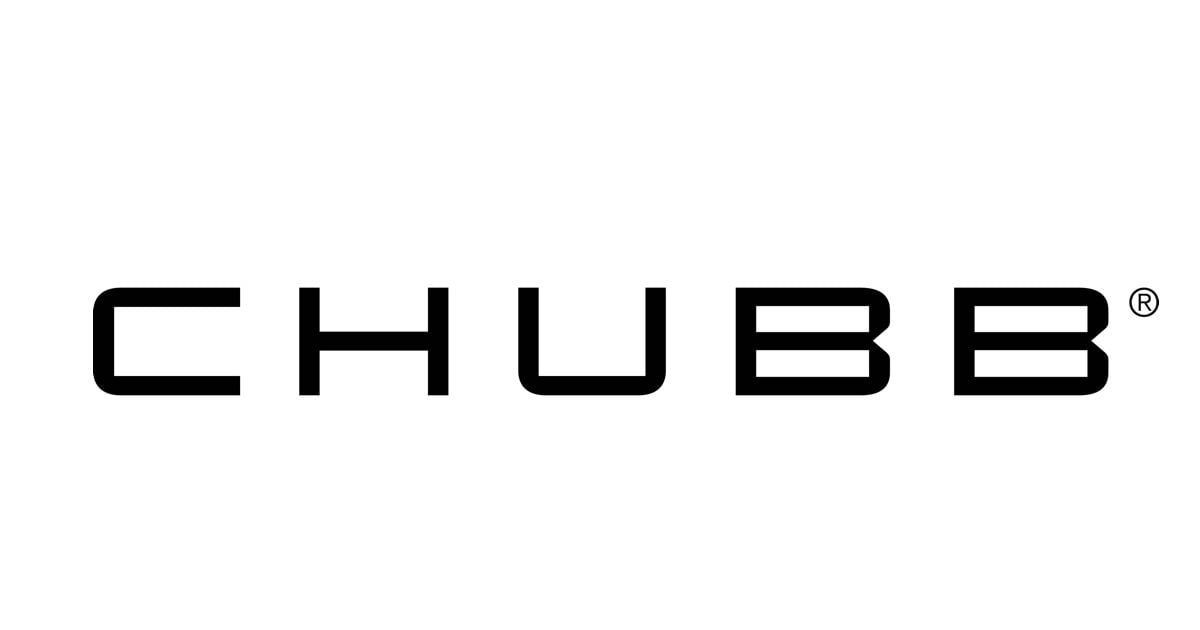Nerdy takeaways
Chubb is the top-rated insurer in Michigan, with the best coverage for high-value homes.
Amica offers the best consumer experience.
State Farm provides the best value, with premiums below the state average.
Cincinnati Insurance draws the fewest consumer complaints.
USAA is our top choice for military families.
When choosing a homeowners policy, we recommend looking not just at price but also at each insurer’s coverage and service. To help you find the best home insurance in Michigan, we analyzed data from companies across the state.
Note: Some insurance companies included in this article may have made changes in their underwriting practices and no longer issue new policies in your state. Even if an insurer serves your state, it may not write policies for all homes in all areas.
The best home insurance companies in Michigan
best for high-value homes

Chubb
- Far fewer consumer complaints than expected for a company of its size.
- Standard coverage includes features that many companies offer only as extras.
- Perks to help you protect your home.
- Most consumers can't get a quote online and will instead need to contact a local agent.
Why it’s worth a look: Chubb has tailored its homeowners policies for people with expensive homes and valuables. Coverage limits are high, and policies include features that cost extra elsewhere. For example, Chubb includes extra dwelling coverage for your home in case it costs more than expected to rebuild.
Standout feature: Chubb’s free HomeScan service can help identify problems in your home before they cause damage. It uses infrared technology to find leaks and other issues behind your walls.
Average rates: Not available.
» READ MORE: Chubb homeowners insurance review
best consumer experience

Amica
- High customer satisfaction ratings and low consumer complaints.
- Platinum Choice package offers extra coverage.
- Dividend policies can return a portion of your premiums.
- You can start a quote online but may have to finish the buying process by phone.
Why it’s worth a look: Amica is known for good customer service. It regularly shows up near the top of J.D. Power’s customer satisfaction surveys, and it draws a very low rate of consumer complaints to state regulators.
Standout feature: Amica offers a generous bundling discount, with savings up to 30% if you buy both home and auto insurance. You can also bundle with other policies such as umbrella or life insurance.
Average rates: Not available.
» READ MORE: Amica homeowners insurance review
best value
State Farm
- User-friendly website.
- Agents offer personalized service.
- Policies generally include extra coverage for your home’s structure.
- Below average for claim satisfaction in a recent J.D. Power study.
Why it’s worth a look: Among the highest-rated insurers in Michigan, State Farm had some of the most affordable rates. But it’s no slouch when it comes to coverage. The company has a long list of options for customizing your policy. A local agent can talk you through your choices.
Standout feature: State Farm offers policyholders a free Ting smart device. It monitors your home’s electrical system to help prevent fires.
Average rates: Below are the average annual rates for a range of dwelling coverage limits.
Dwelling coverage amount | Average annual rate |
|---|---|
$200,000 | $1,630 |
$300,000 | $2,050 |
$400,000 | $2,415 |
$500,000 | $2,740 |
$600,000 | $3,055 |
» READ MORE: State Farm homeowners insurance review
fewest complaints

Cincinnati Insurance
- Various coverage options.
- Far fewer complaints than expected for a company of its size.
- Coverage available for higher-value homes.
- No online quotes.
- Very little information on website.
Why it’s worth a look: Cincinnati Insurance draws a very low rate of consumer complaints to state regulators — one of the lowest rates on our list. This suggests that its policyholders tend to be satisfied with their coverage. The company sells policies through independent agents, who can help you find the right coverage options for your home.
Standout feature: You may be able to add “green upgrade” coverage to your policy. With this add-on, the company will pay extra to repair or rebuild your home with eco-friendly materials.
Average rates: Below are the average annual rates for a range of dwelling coverage limits.
Dwelling coverage amount | Average annual rate |
|---|---|
$200,000 | $1,480 |
$300,000 | $2,170 |
$400,000 | $2,750 |
$500,000 | $3,575 |
$600,000 | $4,515 |
» READ MORE: Cincinnati homeowners insurance review
Best for military families

USAA
- Policies include standard coverage that often costs extra elsewhere.
- Fewer customer complaints to state regulators than expected for a company of its size.
- Perks for military homeowners.
- Available only to active military members, veterans, some federal employees and their families.
Why it’s worth a look: USAA sells home insurance to active military members, veterans, some federal employees and their families. The company offers perks for those in active service, like deductible-free coverage for military uniforms and equipment.
Standout feature: USAA covers your belongings on a replacement cost basis. That means you’ll get enough of a payout to buy brand-new items if yours are damaged. Some companies pay less for older things that have lost value over time.
Average rates: Below are the average annual rates for a range of dwelling coverage limits.
Dwelling coverage amount | Average annual rate |
|---|---|
$200,000 | $1,350 |
$300,000 | $1,725 |
$400,000 | $2,050 |
$500,000 | $2,350 |
$600,000 | $2,625 |
*USAA homeowners policies are available only to active military, veterans, some federal workers and their families. | |
» READ MORE: USAA homeowners insurance review
Other top home insurance companies in Michigan
These home insurance providers are also worth a look.
Company | NerdWallet star rating | Average annual rate |
|---|---|---|
$1,945 | ||
$1,415 | ||
Not available |
How much does homeowners insurance cost in Michigan?
The average cost of homeowners insurance in Michigan is $2,415 per year, or about $201 per month. That's 3% less expensive than the national average of $2,490 per year for the same amount of coverage.
These rates are based on a sample home insurance policy with $400,000 in dwelling coverage, $300,000 in liability coverage, a $1,000 deductible and no recent claims.
Did you know...
The dwelling coverage limit on your policy should be the amount it would take to rebuild your home, based on the cost of labor and construction in your area. It won't necessarily be the price you paid for the house or how much you could sell it for now. Use our calculator to estimate your home's rebuilding cost.
The median rebuilding cost for Michigan homes is $398,043, according to data from First Street, a climate risk modeling firm.
Below are the average rates for policies with various dwelling coverage limits.
Dwelling coverage amount | Average annual rate |
|---|---|
$200,000 | $1,460 |
$300,000 | $1,965 |
$400,000 | $2,415 |
$500,000 | $2,850 |
$600,000 | $3,325 |
The rates above are for homeowners with good credit. In Michigan, policyholders with poor credit pay an average of $5,305 per year — an increase of 120%.
Average cost of homeowners insurance in Michigan by city
The amount you pay will depend on where you live in the state. For example, the average cost of homeowners insurance in Detroit is $5,035 per year, while Grand Rapids homeowners pay $2,315 per year, on average.
City | Average annual rate | Average monthly rate |
|---|---|---|
Ann Arbor | $2,225 | $185 |
Battle Creek | $2,520 | $210 |
Dearborn | $3,390 | $283 |
Dearborn Heights | $3,180 | $265 |
Detroit | $5,035 | $420 |
East Lansing | $2,365 | $197 |
Flint | $4,120 | $343 |
Grand Rapids | $2,315 | $193 |
Kalamazoo | $2,420 | $202 |
Lansing | $2,415 | $201 |
Livonia | $2,575 | $215 |
Novi | $2,430 | $203 |
Pontiac | $3,340 | $278 |
Portage | $2,415 | $201 |
Roseville | $2,755 | $230 |
Royal Oak | $2,640 | $220 |
Saginaw | $2,495 | $208 |
Southfield | $4,035 | $336 |
St. Clair Shores | $2,550 | $213 |
Sterling Heights | $2,500 | $208 |
Taylor | $2,930 | $244 |
Troy | $2,480 | $207 |
Warren | $2,830 | $236 |
Westland | $3,095 | $258 |
Wyoming | $2,305 | $192 |
The cheapest home insurance in Michigan
Here are the insurers we found with the cheapest rates for a variety of dwelling coverage limits.
Company
NerdWallet star rating
Average annual rate
$905
$1,155
Auto Club Group (AAA)
$1,190
Fremont
Not rated
$1,245
$1,285
Company
NerdWallet star rating
Average annual rate
$1,155
Auto Club Group (AAA)
$1,540
$1,560
$1,605
$1,725
*USAA homeowners policies are available only to active military, veterans, some federal workers and their families.
Company
NerdWallet star rating
Average annual rate
$1,415
$1,945
Auto Club Group (AAA)
$2,020
$2,195
$2,050
*USAA homeowners policies are available only to active military, veterans, some federal workers and their families.
Company
NerdWallet star rating
Average annual rate
$1,675
$2,340
Auto Club Group (AAA)
$2,490
$2,575
$2,350
*USAA homeowners policies are available only to active military, veterans, some federal workers and their families.
Company
NerdWallet star rating
Average annual rate
$1,915
$2,705
$2,805
Fremont
Not rated
$2,965
$2,625
*USAA homeowners policies are available only to active military, veterans, some federal workers and their families.
Cheap homeowners insurance in Michigan by claims history
Here are the cheapest home insurance companies in Michigan for homeowners who've filed a recent claim.
Company | NerdWallet star rating | Average annual rate |
|---|---|---|
$1,415 | ||
$2,300 | ||
$2,350 | ||
Auto Club Group (AAA) | $2,455 | |
$2,250 | ||
*USAA homeowners policies are available only to active military, veterans, some federal workers and their families. | ||
These rates are based on a sample homeowner with good credit, $400,000 of dwelling coverage, $300,000 of liability coverage and a $1,000 deductible.
Cheap homeowners insurance in Michigan by credit score
Here are the cheapest home insurance companies in Michigan for homeowners with poor credit. Read more about how your credit scores impact home insurance rates.
Company | NerdWallet star rating | Average annual rate |
|---|---|---|
Auto Club Group (AAA) | $3,670 | |
$3,755 | ||
Fremont | Not rated | $3,955 |
$4,345 | ||
$3,295 | ||
*USAA homeowners policies are available only to active military, veterans, some federal workers and their families. | ||
These rates are based on a sample home insurance policy with $400,000 in dwelling coverage, $300,000 in liability coverage, a $1,000 deductible and no recent claims.
Common discounts
Make sure to ask your home insurance company about any discounts you may be eligible for. Here are some of the most common:
Many insurers offer savings if you buy more than one policy, such as home and car insurance. See our picks for the best home and auto insurance bundles.
Got a burglar alarm, smoke detectors or a smart device that alerts you if you have a leak? Safety and security features like these could earn you a discount.
Sign up for paperless billing or set your premiums to autopay, and you could get a discount.
Many insurance companies give discounts to customers who’ve gone a certain number of years without filing a home insurance claim.
Some insurers offer discounts to new policyholders or reward those who’ve stuck around for a while.
Teachers, doctors, members of the military and others may be eligible for discounts from certain insurers.
Learn more about common home insurance discounts.
Common Michigan home insurance problems
Flooding. Flooding causes more property damage than any other natural disaster in Michigan. Unfortunately, home insurance usually won’t pay for this type of damage. If you live in an area that's at risk, such as along a lake or river, your mortgage lender will likely require you to buy flood insurance. But you could be at risk no matter where you live, so flood insurance may still be worth considering.
To check your flood risk, start with the federal government’s flood maps. However, these maps don’t always capture all types of flood risk. You may want to check another source such as First Street, a company that models climate hazards. Enter your address at the top of the page to see your home’s flood risk rating.
Tornadoes. Michigan gets about 15 tornadoes a year, on average. A standard homeowners insurance policy covers tornado damage. It will also pay for additional living expenses you might have if you have to move out of your home during repairs.
Winter weather. Snow, ice and frigid temperatures could cause problems like burst pipes or fallen branches. Homeowners insurance will generally cover this type of damage, as long as it wasn’t due to negligence. Say you turn your thermostat down too low while you’re away from home for a few days. Your insurer might refuse to pay for damage from a burst pipe because you could have prevented it.
Common optional coverage
A standard homeowners policy can sometimes fall short, so it's worth looking for ways to make it more comprehensive. For example, we recommend asking if your insurer offers extended or guaranteed replacement cost coverage for your home. These add-ons give you extra dwelling coverage in case it costs more than you expect to rebuild your home after a disaster. Having this coverage can be a useful hedge against inflation.
Here are a few additional types of coverage you may want to buy.
Floods are the most common weather disaster in the U.S. and can happen anywhere, not just coastal areas. You can buy flood insurance through the federal government or from private companies. Learn whether you need flood insurance.
Homeowners policies generally won’t cover damage if a drain backs up into your home or your sump pump fails. Adding water backup coverage can help with these issues.
Homeowners policies may cover your stuff on an actual cash value or replacement cost basis. With actual cash value, the policy will pay less for older items that have lost value over time. To get enough of a claim payout to buy brand-new items, opt for replacement cost coverage.
If you have expensive jewelry, fine art or other valuables, you may need extra insurance for them. Learn more about scheduled personal property coverage.
Service line coverage pays to fix damaged water, gas, sewer or other underground lines on your property.
If your HVAC system or another major appliance fails, equipment breakdown coverage can help pay for repairs.
Michigan Basic Property Insurance Association
The Michigan Basic Property Insurance Association is the state’s insurer of last resort. It was established in 1968 to help insure properties in high-risk areas of the state. You’ll have to work with a licensed agent in Michigan to determine eligibility and apply for a policy.
Details on the website are sparse. For coverage information, contact an agent.
Get home insurance quotes in minutes
Answer a few questions to see custom quotes and find the right policy for you.Michigan department of insurance
Michigan’s Department of Insurance and Financial Services oversees the state’s insurance industry. You can file a complaint on its website, which also provides information about home insurance. To get help from the DIFS, call 877-999-6442.
How we review home insurance
Our editorial team considers these factors when rating homeowners insurance companies:
This part of our star rating is based largely on consumer complaints to state regulators, as reported by the National Association of Insurance Commissioners. When available, we also include each company’s performance in the most recent J.D. Power Home Insurance Study. Other factors in our consumer experience score include customer-friendly features such as online claims filing and quotes.
We use AM Best and Demotech ratings to confirm each insurer’s long-term financial stability and ability to pay claims.
Companies score higher if they offer many common endorsements and include more comprehensive coverage in their standard plans. In particular, we look at features such as extended coverage for the structure of your home and replacement cost coverage for personal belongings.
We evaluate how many of the most common home insurance discounts each company offers.
See our complete homeowners insurance rating methodology.
Frequently asked questions
Home insurance isn’t required by law in Michigan. But if you have a mortgage, your lender will likely require you to have a policy.
Even if your home is paid off, we recommend having insurance to protect your finances from unexpected disasters. For more information, read Is Homeowners Insurance Required?
Your home insurance policy may cover mold if it happens as a result of something your policy covers. For example, most home insurance policies will pay for damage from a burst pipe, so they may also pay to get rid of any resulting mold. But insurance doesn’t cover maintenance. So if your basement gets moldy because you didn't run a dehumidifier, you’ll likely have to clean it up yourself. Learn more about whether homeowners insurance covers mold.
NerdWallet writers are subject matter authorities who use primary, trustworthy sources to inform their work, including peer-reviewed studies, government websites, academic research and interviews with industry experts. All content is fact-checked for accuracy, timeliness and relevance. You can learn more about NerdWallet's high standards for journalism by reading our editorial guidelines.
- 1. Michigan Department of State Police Emergency Management and Homeland Security Division. Michigan Hazard Mitigation Plan. Accessed Mar 4, 2026.
- 2.Michigan State Police. Tornadoes. Accessed Mar 4, 2026.
Star rating methodology
NerdWallet’s homeowners insurance ratings reward companies for customer-first features and practices. Ratings are based on weighted averages of scores in several categories, including financial strength, consumer complaints, coverage, discounts, claims process and website functionality. These ratings are a guide, but we encourage you to shop around and compare several insurance quotes to find the best rate for you. NerdWallet does not receive compensation for any reviews or star ratings.
Here’s how we weighted each category to come up with our list of the best home insurance companies:
Consumer experience (40%).
Financial strength (30%).
Coverage (25%).
Discounts (5%).
Read our full home insurance ratings methodology for more details.
Homeowners insurance rates methodology
NerdWallet calculated median rates for 40-year-old homeowners from various insurance companies in ZIP codes across all 50 states and Washington, D.C. All rates are rounded to the nearest $5.
Sample homeowners were nonsmokers with good credit living in a single-family, two-story home built in 1984. They had a $1,000 deductible and the following coverage limits:
$400,000 in dwelling coverage.
$40,000 in other structures coverage.
$200,000 in personal property coverage.
$80,000 in loss of use coverage.
$300,000 in liability coverage.
$1,000 in medical payments coverage.
We made minor changes to the sample policy in cases where rates for the above coverage limits or deductibles weren’t available.
In states where credit is a rating factor, we changed the credit tier from “good” to “poor,” as reported to the insurer, to see rates for homeowners with poor credit.
In select states, we added a single wind damage claim to see rates for homeowners with a claim on their record.
These are sample rates generated through Quadrant Information Services. Your own rates will be different.
Complaint methodology
NerdWallet examined complaints received by state insurance regulators and reported to the National Association of Insurance Commissioners in 2022-2024. To assess how insurers compare with one another, the NAIC calculates a complaint index each year for each subsidiary, measuring its share of total complaints relative to its size, or share of total premiums in the industry. To evaluate a company’s complaint history, NerdWallet calculated a similar index for each insurer, weighted by market shares of each subsidiary, over the three-year period.
NerdWallet conducts its data analysis and reaches conclusions independently and without the endorsement of the NAIC. Ratios are determined separately for auto, home (including renters and condo) and life insurance.
Rebuilding cost methodology
The median home rebuilding cost referenced above is based on 2025 replacement cost data from First Street, a climate risk modeling firm. Actual replacement costs may vary based on factors like location, square footage, construction materials, the age of your home and local labor costs.






